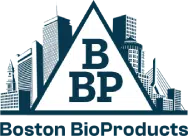TBS
Tris Buffered Saline (TBS) is an isotonic, non-toxic buffer widely used in biochemistry and molecular biology for maintaining pH and ionic balance. It combines Tris, which acts as a reliable pH buffer (typically 7.4–8.0), with sodium chloride (NaCl) to regulate osmotic pressure, making it suitable for a wide range of protein and antibody-based applications.
TBS is commonly used for:
Washing and dilution steps in ELISA, Western blotting, and immunoassays
Maintaining protein structure during purification and storage
pH regulation in enzymatic and biochemical workflows
- Stable pH buffering for accurate, reproducible results
- Non-toxic and gentle on proteins and cells
- Supports optimal binding conditions in antibody-based assays
Whether you're conducting sensitive protein detection or general lab workflows, TBS provides a balanced, consistent environment for your experimental needs.
Read More

